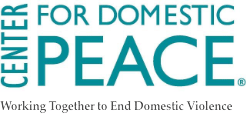Get Help For Immigrants Experiencing Domestic Violence
THE RIGHTS OF IMMIGRANTS WHO ARE VICTIMS OF DOMESTIC VIOLENCE
Immigrants in the United States have the right to live life free of domestic violence and abuse. Center for Domestic Peace rejects all discrimination based on race, ethnicity, religion, gender, gender identity and expression, sexual orientation, immigration status, socioeconomic status, and disability. We are committed to protecting the rights of every survivor, regardless of their immigration status. All our services are 100% voluntary and 100% confidential/anonymous. We will not ask you for your immigration status, or for a social security number. Rest assured that any information you wish to disclose to us will be kept in the utmost confidentiality.
Everything on this page can be useful and relevant to you even if you are an undocumented immigrant in the U.S. In this country, domestic violence or child abuse is a crime, even if it’s not a crime in your country of origin. If you are an undocumented immigrant and are a victim of crime in this country, you have the same rights as a U.S. citizen to access services for crime victims.
This means that if you are confronting domestic violence and you want help, you will not be deported just because you called the authorities or made a police report. You cannot be deported for trying to get a restraining order or testifying in court.
You cannot be deported for asking for help from shelters or crisis line.
Also, if your spouse is a United States resident or citizen and you are a victim of abuse, you may be eligible for U.S. residency without your abusive partner through VAWA (Violence Against Women Act). Even if you are not married to a United States resident or citizen, but you have worked with the police or the District Attorney, you might be eligible for a U-Visa. Speak with an immigration attorney or explore your options. Remember, you are not alone. If you are asserting your rights and face discrimination, call our Legal Systems Advocacy Department.
THE RIGHT TO GOOD TRANSLATION SERVICES FOR VICTIMS WHO DON’T SPEAK ENGLISH
The courts have decided that public agencies must provide adequate translation for people who don’t speak English. When you request services from public agencies like the police and courts, you can request an interpreter. Good translation services are especially important for people reporting domestic violence. If the police officer can’t understand you, it is harder for the officer to protect you and your family. Also, your statements to the police are the central evidence in a criminal case. For this reason, the police should not use your children, family members, or neighbors to translate the conversation between you and the police. If you call 911, operators have immediate telephone access to multi-lingual interpreters.
Although you have the right to good translation service through the police, not all police officers will offer this to you. The police have access to the same telephone interpreter service as the 911 operators. If the officer does not get you a professional interpreter, you can write a statement in your own language to add to the police report. You can also call 911 again and ask that your conversation with the police be interpreted.

